'The maximum struggle that I have gone through in this industry was to try to get a film made which had a female action star.'
'And that film never got made, despite reaching out to some of the biggest actresses.'
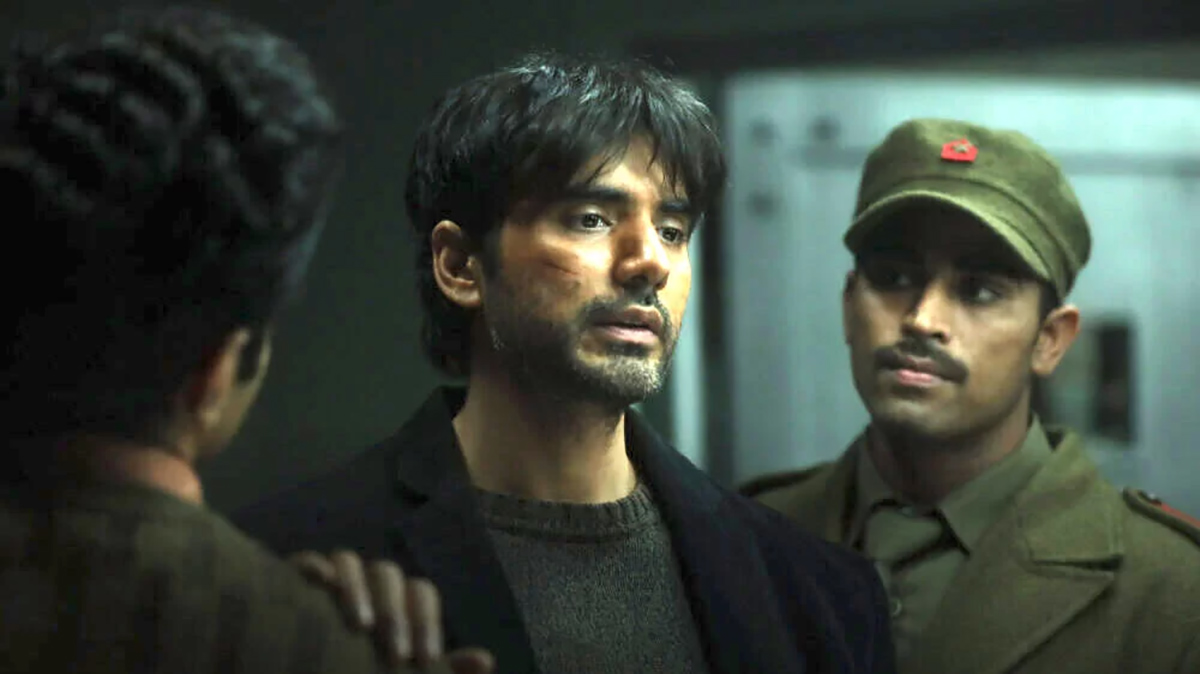
Atul Sabharwal finds acclaim with Berlin -- the spy thriller streaming on ZEE5 -- and that, he says, has bolstered his confidence as storyteller.
It has not been an easy journey for Atul who started his career as screenwriter about two decades ago.
His first directorial Aurangzeb (2013), an action thriller backed by Yash Raj Films, was a commercial failure despite featuring a stacked star cast (Arjun Kapoor, Rishi Kapoor, Jackie Shroff, Prithviraj Sukumaran, Swara Bhasker and Rasika Dugal).
His second directorial outing was the OTT film, Class of '83.
The biggest setback, says Atul, was a big-budget female-led project that never saw the light of day.
"It was the stubbornness to make the first female action hero film that negatively impacted my career," Atul tells Mayur Sanap/Rediff.com.
For someone who has such a long-standing career, why there is no Wikipedia page in your name?
(Laughs) Because I never made one. My manager had suggested it once or twice, but I discouraged him.
It is unnecessary waste of time and energy to keep maintaining your digital profiles online. I would even leave the only social media handle that I frequently use, which is Instagram.
We are spending more and more efforts in our image rather than on ourselves and that is something I would consciously try and correct for myself.
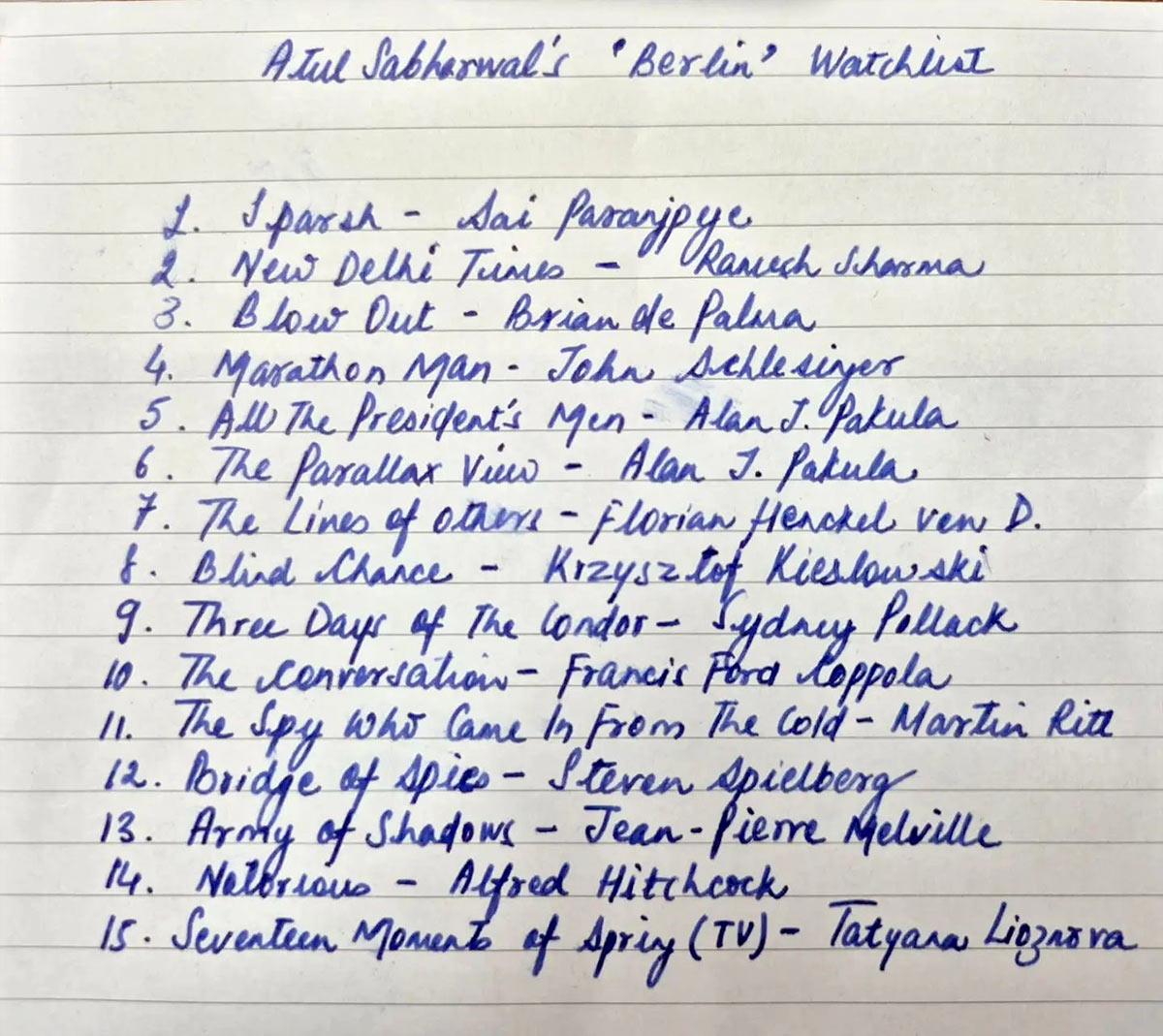
What inspired you to write Berlin?
There is no one inspiration. It's a confluence of different thoughts, which find a central focus and then they can move on to that point and thankfully become something.
It was a chance meeting with a deaf reader in a cafe and then I was reading some Len Deighton and Eric Ambler.
I may have watched some movies over the years and also desired to do something within the brutalist architecture. I was also going through a book called The Structure: Works of Mahendra Raj and architecture of (architect) Raj Rewal at a bookshop.
It's a trigger of different thoughts which sort of converge into time, space and story.
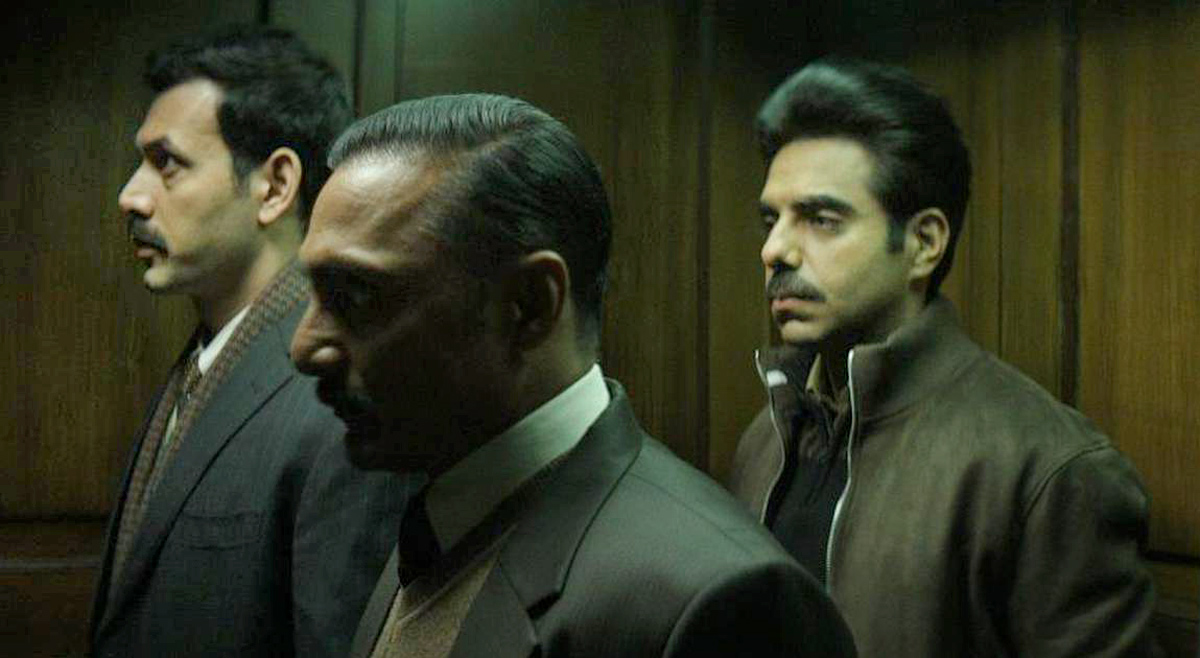
What's the thematic representation of the title for you?
Berlin, as such, in a spy fiction has a massive presence.
I have read three novels, two by Len Deighton. One is Berlin Game and another is Funeral in Berlin.
There's a third novel called Berlin Finale.
So Berlin was the epicentre of the Cold War, East Germany, West Germany, the Berlin Wall in between.
It's a very demarcating line, a dividing line for the world. The fall of the Berlin Wall changed the landscape across the world, not just in Germany or in Europe. So I thought it's a very symbolic title.
We were not the only ones who thought of Berlin as the title. There was another script going around with Balaji Motion Pictures and we had to request them to give us the title because they were not making that film.
When you watch the film on ZEE5, the first slate is a special thanks to Ekta Kapoor.
Your casting choices are pretty interesting, like how you cast Arjun Kapoor in a double role in Aurangzeb or the way you re-imagined Bobby Deol as this upright police office in Class of '83.What appealed you about Ishwak Singh, Aparshakti Khurana and Rahul Bose for Berlin?
Rahul is, of course, a very competent actor and a great mind to interact with. He brings something more to what is on the page.
I had seen Apar's audition for Jubilee and Ishwak's Paatal Lok. But they were also two individuals who were willing to give time to be these characters.
See, it's not easy to just walk to a set and be a sign language interpreter or a deaf-mute person.
No matter what your acting talent is, you have to give that project that much of preparation time.
In this project, it was not only about learning lines or doing dialogue workshops. It was about learning sign language, not just physically learning it, but to have an instinct for it, because the syntax is quite different.

All three of them have such a distinct acting style. What was the process to bring them on the same page?
I never try to bring everybody on the same page. Each is allowed to have their own process because that is their comfort zone.
Unless that comfort zone needs to be challenged or is making them lazy, it's a different story. But that wasn't there in this case.
Apar has a very different process from Rahul.
My job as a director is to let them make the best of the process that they follow because for me, they are here for this one project.
But over the years, they have created that process for themselves.
Let's say, even me, if I'm working as a writer with Vikram (Vikramaditya Motwane) on Jubilee, as a director, he lets me have my process as opposed to telling me what would be the process of a Varun Grover who has worked with him on Sacred Games or of Abhay Koranne who has worked on Bhavesh Joshi.
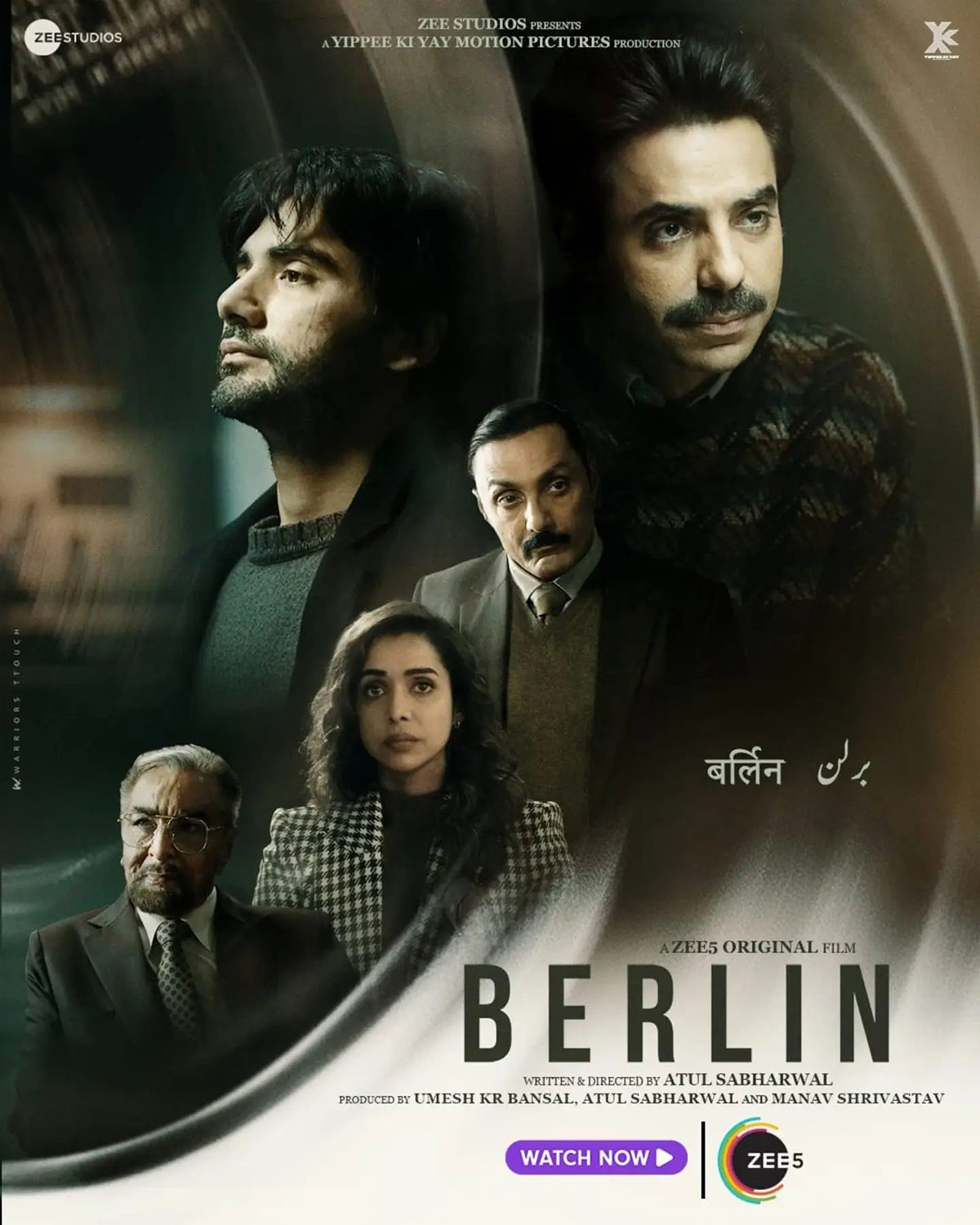
Anupriya Goenka is the only female character in Berlin, but it's not a well-rounded character. The same can be said about your female protagonists in Aurangzeb (Sasha Agha Khan) and Class of '83 (Geetika Tyagi). One can argue that the women in your films are not meaty as their male counterparts.
Then see Geetika Tyagi in Powder, where she's the main lead. (The 2010 show that Sabharwal wrote and directed).
I know you're coming from a space of what has come out, but the maximum struggle that I have gone through in this industry was to try to get a film made which had a female action star.
There was no hero in that film.
There was no saviour angel.
The woman had to do all her action and save herself. And that film never got made, despite reaching out to some of the biggest actresses.
So you have to understand what the market will fund and therefore, what will get made.
When I'm writing for Vikram who has enough equity, I can go a little further and write Nilofer (Wamiqa Gabbi's character in Jubilee) because nobody will say reduce Nilofer.
But when I am doing it, I know that I don't have that kind of equity, either with actors or with studios. So my stories that get made end up being a little different.
But yes, both Wamiqa's character and Geetika's character in Powder came from me, so I don't think I will take that criticism seriously.
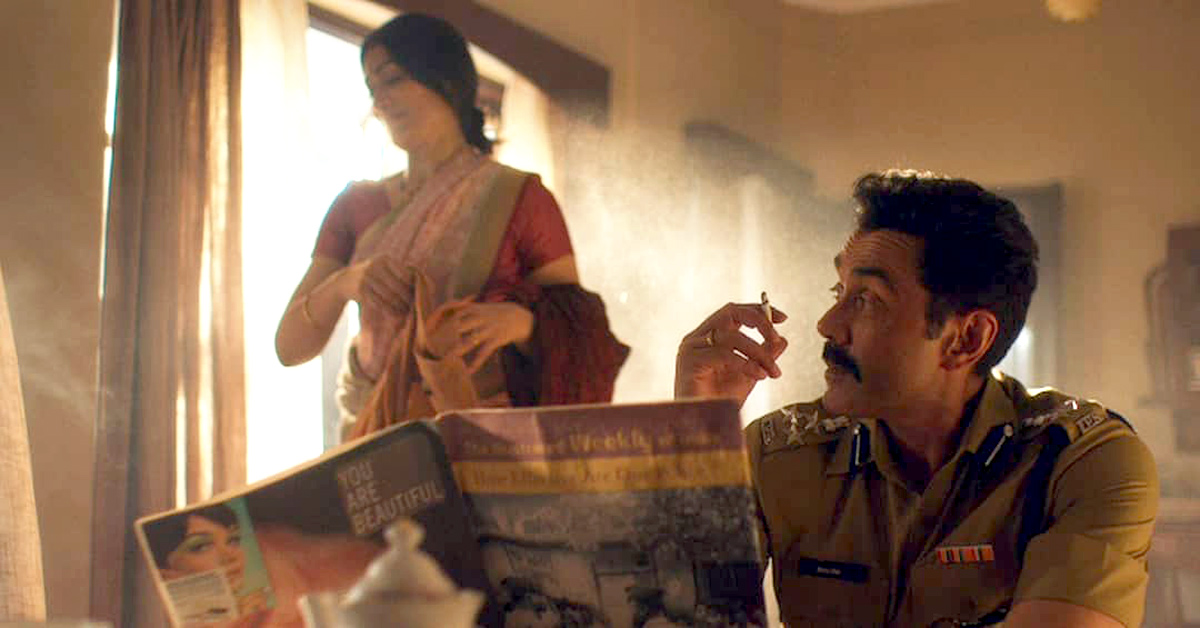
You mostly write your own stories. Do you deviate from the script during the shoot?
I don't self-doubt myself on the shoot, so I don't deviate. But if a better idea comes along, I need to have enough room for it.
I think if you have invested time and effort in creating a blueprint, you have to follow it.
What excites you about the thriller genre? Whose work do you admire in this genre?
I like Sriram Raghavan. I really enjoyed Badlapur and Andhadhun.
I enjoyed Trapped.
Then Abhishek Chaubey's Sonchiriya.
I like films which have an element of thrill and action.
I read once that you always wanted to be a director. Tell us about your journey.
I wanted to be a director ever since I was 12 years old.
Nobody from my family is in the movies.
As with any upper middle class parents, they hoped their child would become an engineer, doctor, chartered accountant or company secretary, something like that.
So I got a certain education.
But then, I managed to convince my parents when I was in my early 20s that this is the profession I want to be in.
So I ended up here.
I did not want to be an assistant director in order to become a director. When I first met Ram Gopal Varma, he said what do you want to be.
I said I want to be a director.
He asked me if I wanted to assist.
I said, No, I want to tell the story.
He tested me for three days and realised that I could write. So he gave me my first break which was Darna Mana Hai (2003).
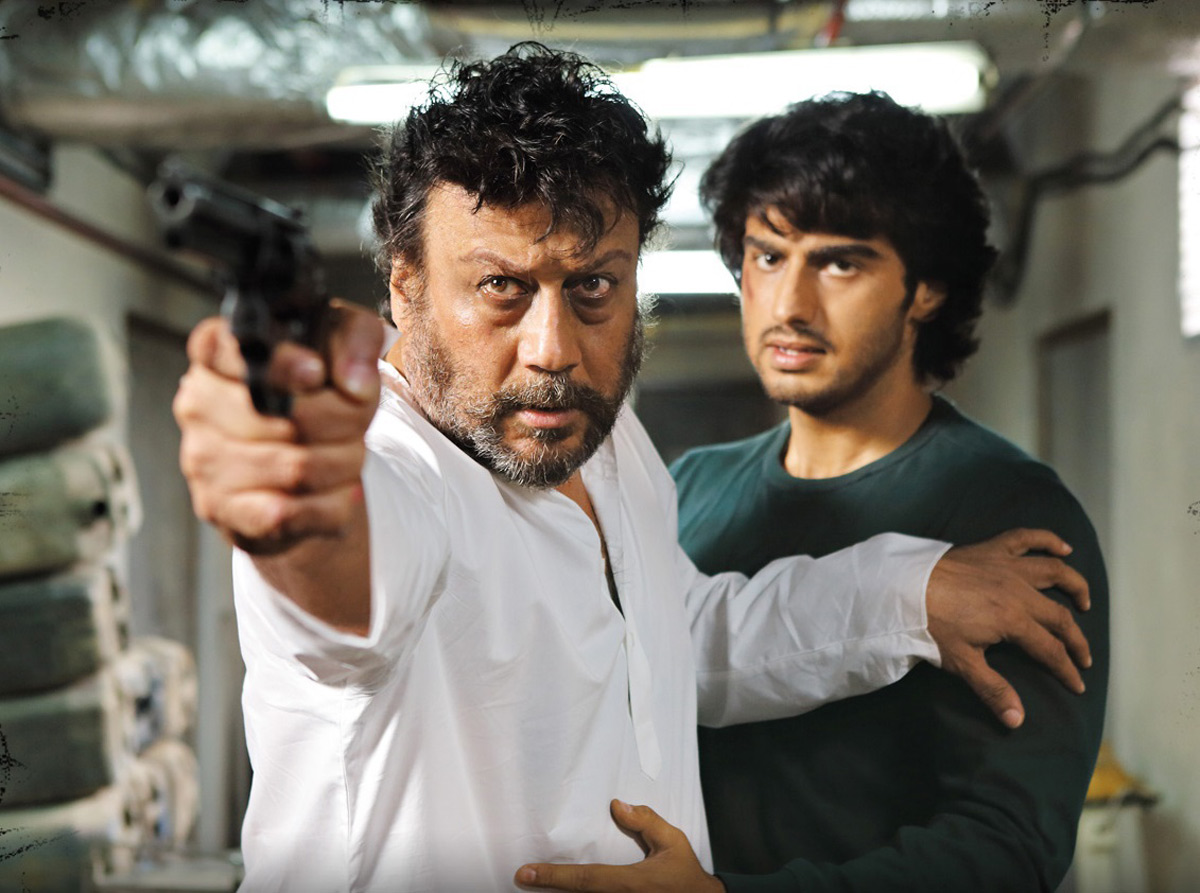
You made your directorial debut with Yash Raj Films, one of the biggest production companies. Did the failure of Aurangzeb negatively impact your career?
No, it didn't. It was the stubbornness to make the first female action hero film that negatively impacted my career.
That was the script I was trying to get made between 2014 and 2017, first at Yash Raj Films and then with Ronnie Screwvala Pictures. Before I realised, four years of my life had gone by and I had wasted them.
The biggest female-led success film at that point was Piku, which was a non-action film.
The budget that my film needed and everything, those decisions, maybe I tried to swim against the tide prematurely.
But in terms of getting job offers or not, that didn't happen. Everybody in the industry felt Aurangzeb was a well-made film.
Everybody was sure that I could direct actors.
There were no directorial failures as such, they were commercial failures.
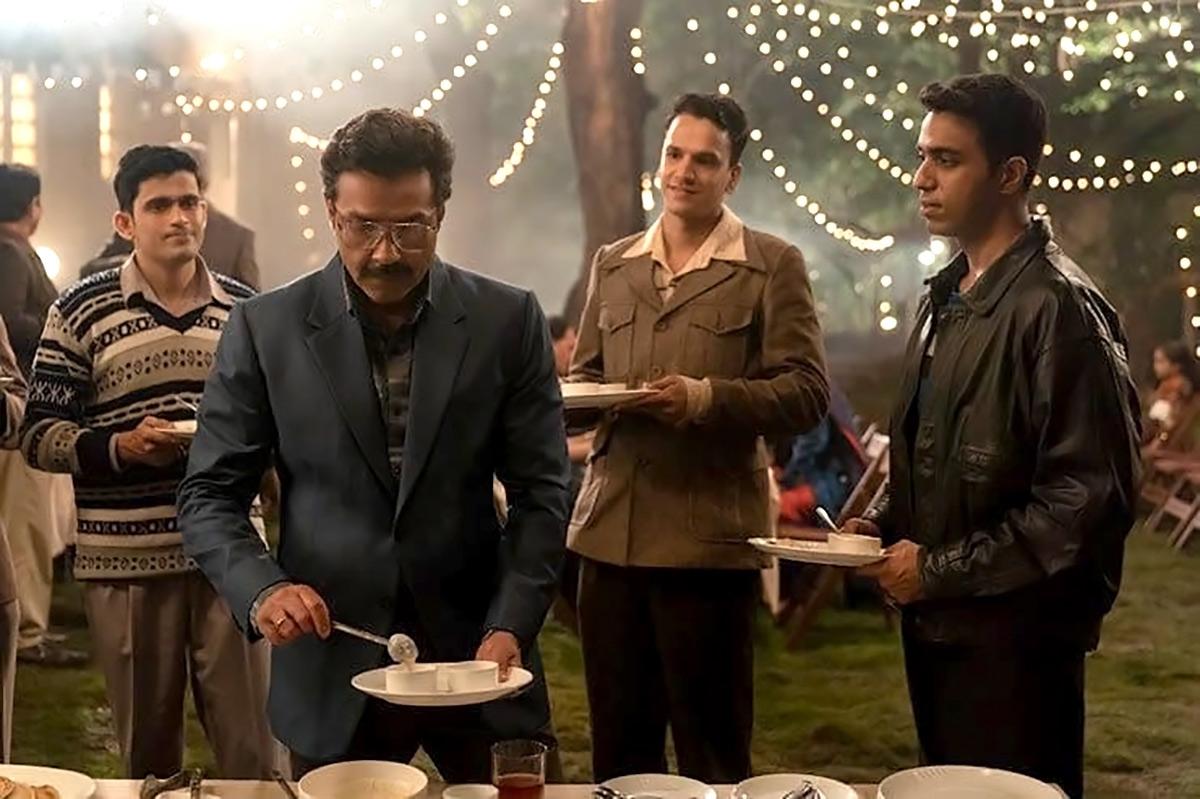
How do you look back at your evolution as a film-maker?
That depends on which genre I have evolved.
I have not done a spy film before Berlin.
Similarly, there was no precedence before Aurangzeb of YRF doing a darker film, and that was a quite a dark family drama.
And I had never written a drama before that.
When I did Class Of '83, there was a precedence of me having dealt with cops, but again, there was no period cop film in this country, at least not in Hindi.
Each one brings its own challenges and I think it's better not to be consciously aware of your evolution because that can have some complacency set into you.
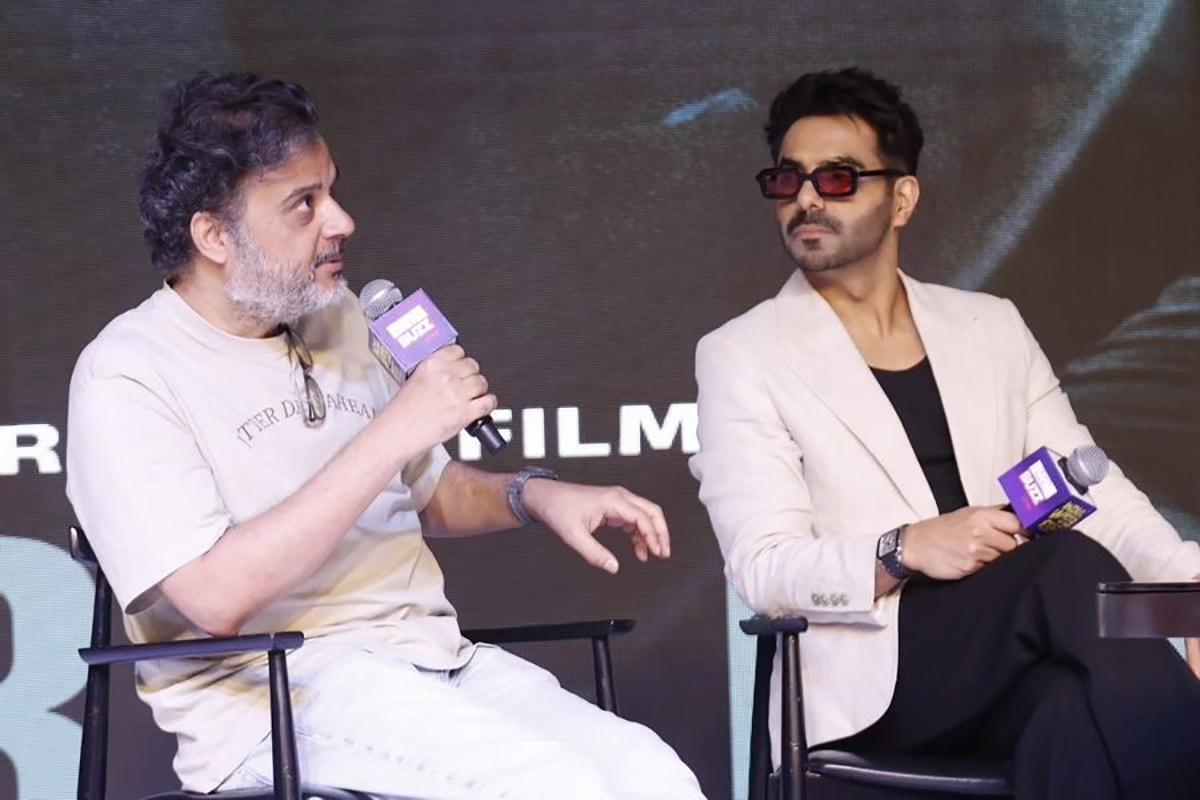
What does acclaim for Berlin do for your conviction and confidence as a storyteller?
It feels very rewarding and gratifying to receive accolades.
It bolsters your confidence.
Whether it now means that it would open up avenues for me and for others to tell different kind of stories or not, one can only wait and watch.
But right now, it definitely feels good.
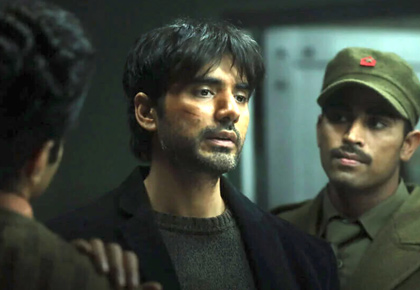






 © 2025
© 2025